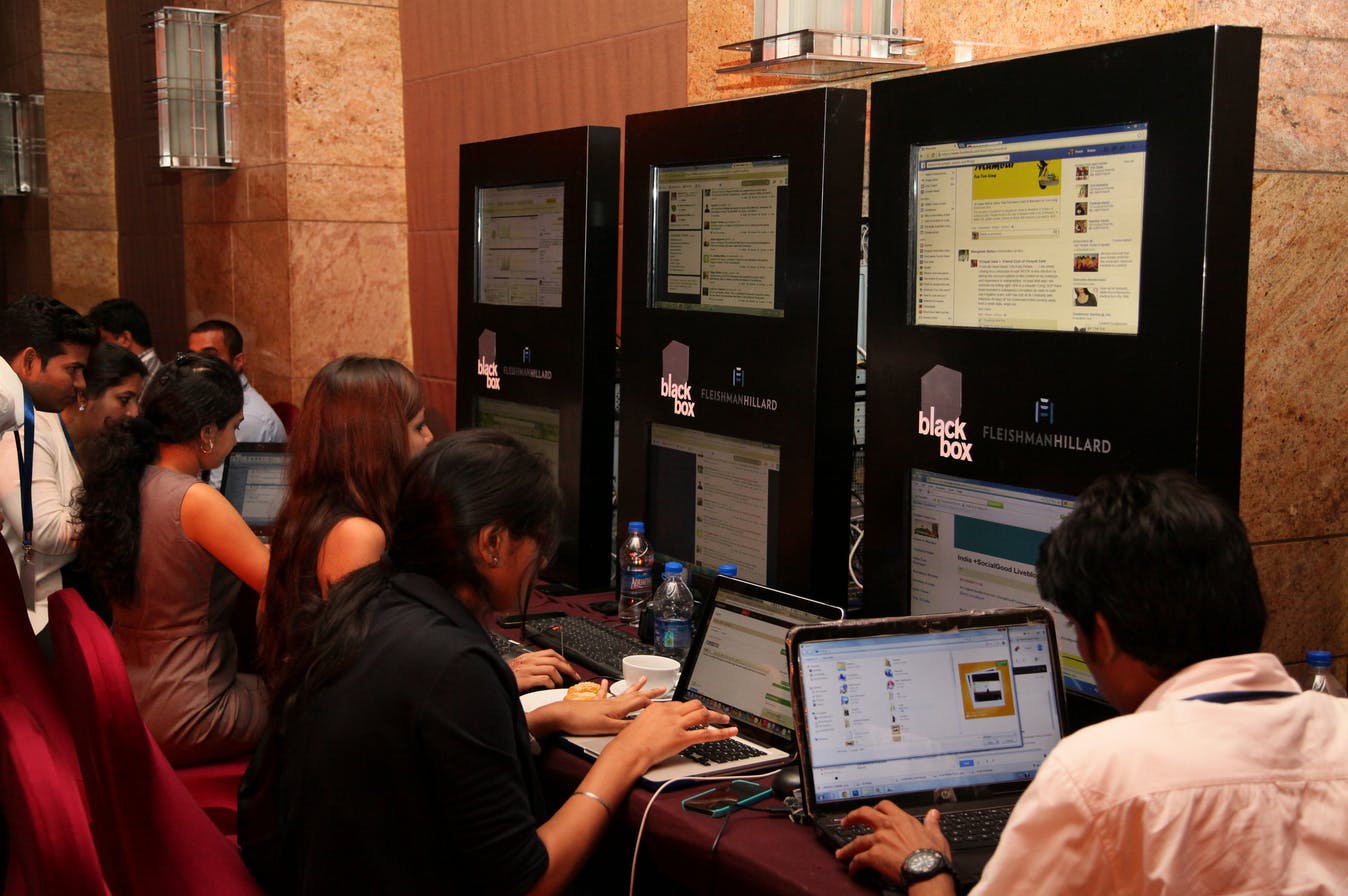
There is a lot to think about when you are in a room filled with social media pioneers, global thinkers, and experts from one of the world’s most populous countries: India. Everything you think about, in fact, starts with the reminder that 1 billion people are counting on the answers to how we tackle the big challenges: improving global health, empowering girls and women, confronting the realities of climate change, and leveraging technology and new media to advocate for economic and social development.
Here is what I heard from people in Mumbai for the event and joining us online:These questions filled the room – and social media streams in Mumbai and around the world – during India +SocialGood this week. As part of the UN Foundation team, which has partnered with 10 organizations supporting the +SocialGood community, I was listening for themes and trends from the meeting.
1) You don’t have to look far to see problems…and progress.
Everyone I spoke to at India +SocialGood was eager to point out that India is home to some of the world’s most innovative people. They also pointed out that social entrepreneurship and innovation is a priority – not a luxury – in a place where poverty and prosperity live in very closequarters. The problems in India’s urban centers (such as sanitation, health, and transportation) put the need for innovative solutions in full view. Technology is at the heart of many of these solutions. At the same time, the UN Development Programme’s Lise Grande pointed out the important progress that India has made on the Millennium Development Goals.
2) People are looking for ways to connect local experiences with national leaders.
India, like all democracies, is constantly looking for ways to connect local needs and priorities with elected officials in the capital city. Technology is providing new channels of communication, but begs the question: How do you make sure that those without a voice get their voices heard? This was a fascinating theme to talk about in India during a period when national elections are underway. Amit Sengupta shared some ideas and I am sharing his blog from the event that includes links to examples of some of the ways India is experimenting with town halls that use technology to help put important issues like global development and assistance on the national agenda.
3) 2030 doesn’t feel very far away in India, and it feels mobile.
A number of the participants talked about the ongoing conversations about the next generation of goals aimed at making progress on global development. Looking toward 2030, the young Indians I met (including our +SocialGood Advisors, Connectors, and various entrepreneurs and student organizers) pointed to 2030 as a benchmark for driving deliverables in the fight against global poverty. A common theme in their comments was the fact that India is already operating in an environment that embraces and runs on mobile technology. While millions still lack access to it (and many are working hard to change that), people from every walk of life are relying on mobile technology in most aspects of life. This is where the conversation about mobile technology for health, governance, and improving rights for girls and women became very exciting. And with a community of people dedicated to new media and technology in the room, it was a natural way for the conversation to go from good ideas to tactical solutions.
You can find a link to the Storify here that brings together some of the top themes, tweets, posts, and blogs from the day.



 View All Blog Posts
View All Blog Posts